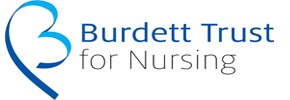Resources
Octoe - Suplementory Resource
Please download the Octoe: Understanding self-harm and care pathways for Children and Young People (CYP) admitted to hospital suplementory information PDF resource.
Online Resources
| Title/link | Description |
|---|---|
| Website: ChildLine | ChildLine is a private and confidential service for children and young people up to the age of 19. ChildLine counsellor can be contacted about anything - no problem is too big or too small. Calls are free (0800 1111) or they can be contacted online or via email. |
| Website: MindEd | MindEd is a free educational resource on children and young people's mental health for all adults. |
| Website: NHS Choices | NHS Choices is the UK's biggest health website. It provides a comprehensive health information service to help put patients in control of their healthcare. The website helps them to make choices about their health, from decisions about lifestyle, such as smoking, drinking and exercise, to finding and using NHS services in England. |
| Website: YoungMinds | YoungMinds is the UK's leading charity committed to improving the emotional wellbeing and mental health of children and young people. YoungMinds Parents' Helpline: 0808 802 5544 (Monday to Friday, 9.30am to 4pm) or email parents@youngminds.org.uk |
| Website: Care Pathways | Care Pathways links through to the National Institute for Health and Care Excellence (NICE) website and provides an excellent overview on self-harm. |
Glossary
CYP - Children and Young people.
CAMHS - 'Child and Adolescent Mental Health Services'. An NHS service that offer assessment and treatment when children and young people have emotional, behavioural or mental health difficulties.
Self-harm - Self-harm has been defined by NICE as 'self-poisoning or self-injury, irrespective of the apparent purpose of the act'.
Self-injury - This occurs when somebody injures their own body.
Self-poisoning - This occurs when someone takes more than the recommended dosage of a medicine, takes a large amount of illegal drugs or swallows poisonous substances or objects.
NSSI - An acronym sometimes used in medical notes meaning 'Non-suicidal self-injury'.
Books
Baker, C. (Ed.). (2013). Our Encounters with Self-Harm. Chicago. DescriptonThis book contains stories of direct experience of self-harm. This will be of great benefit to those interested to those studying and practising in the field of mental health. |
|
McDougall, T., Armstrong, M., & Trainor, G. (2010). Helping children and young people who self-harm: An introduction to self-harming and suicidal behaviours for health professionals. Routledge. DescriptonThis book provides clear, evidence-based practical guidance for health professionals and other members of the children's workforce who manage self-harm cases. |
Credits
Content authors: Asam Latif, Joseph Manning, Tim Carter, David Clark, Laura Holliday, Leanne Harvey
Project Mentor: Heather Wharrad
Project Developers: Aaron Fecowycz, James Henderson, Lydia Jones and Michael Taylor
We gratefully acknowledge support from members of Nottingham Youth Theatre: Bronwen Pole, Theo Swan and Alistair Conquer
The project was funded by the Burdett Trust and a special thank you goes to the Burdett Trust and Nottingham Childrens Hospital





